China Approves Plan To Impose Hong Kong Security Law
China's parliament approved plans Thursday to impose a security law on Hong Kong that has ratcheted up tensions with the US and sparked new protests over fears the city is losing its special freedoms.
The vote by the rubber-stamp National People's Congress (NPC) spurred the US and Britain to call for the United Nations Security Council to meet informally on Friday to discuss the issue.
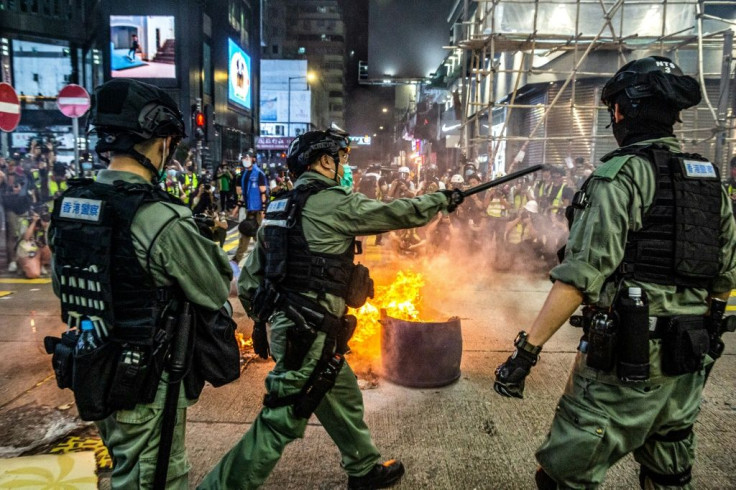
And it came hours after Washington revoked the special status conferred on Hong Kong, paving the way for the territory to be stripped of trading and economic privileges.
US Secretary of State Mike Pompeo said the status had been withdrawn because China was no longer honouring its handover agreement with Britain to allow Hong Kong a high level of autonomy.
"No reasonable person can assert today that Hong Kong maintains a high degree of autonomy from China," Pompeo said.
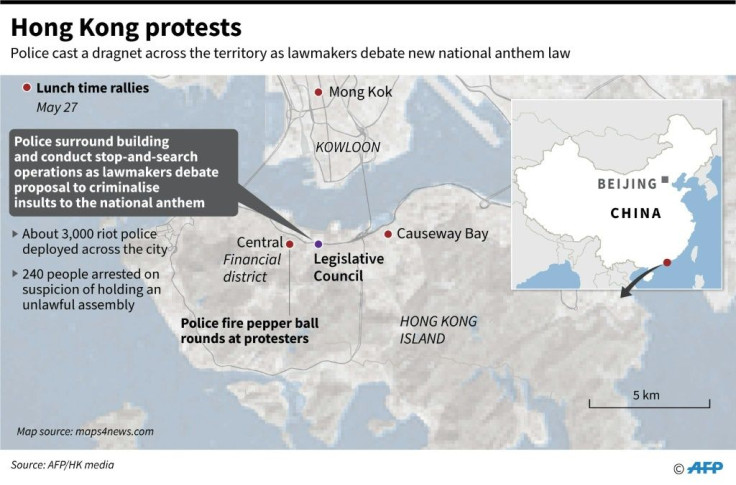
China made the security law a priority at its annual NPC session, after huge pro-democracy protests rocked the financial hub for seven months last year.
The law would punish secession, subversion of state power, terrorism and acts that endanger national security, as well as allow mainland security agencies to operate openly in Hong Kong.
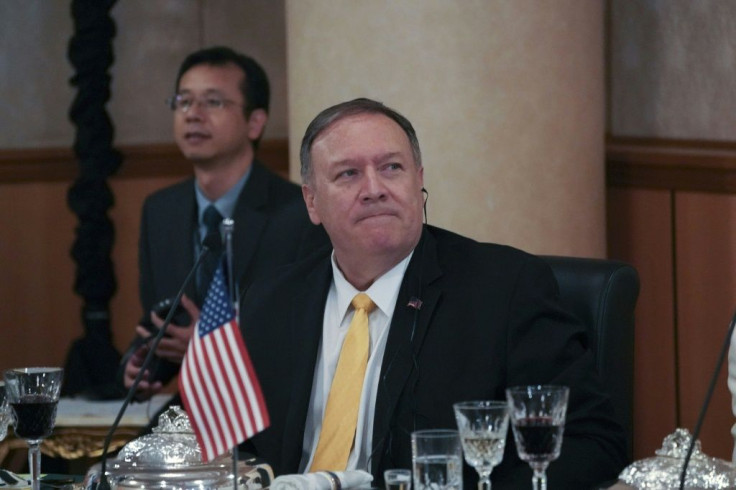
Delegates endorsed plans for the law with an almost unanimous vote and enthusiastic applause.
Li Zhanshu -- the chairman of the NPC Standing Committee which will now draft the law -- said the move was "in line with the fundamental interests of all Chinese people, including Hong Kong compatriots".
Hong Kong's embattled leader, Carrie Lam, said she welcomed the resolution being passed.
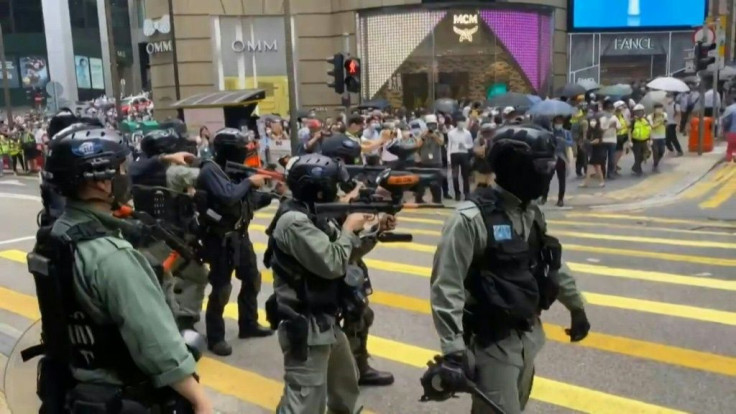
As required in the resolution, Lam said she would submit regular reports to Beijing and "step up law enforcement and public education for safeguarding national security".
But the law has met fierce criticism.
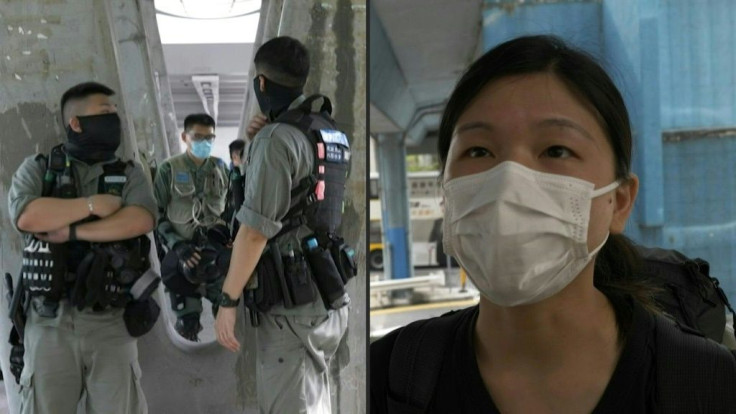
"It's the end of Hong Kong.... They are cutting off our souls, taking away the values which we've always embraced, values like human rights, democracy, rule of law," pro-democracy lawmaker Claudia Mo told AFP.
Joshua Wong, a prominent pro-democracy activist, told AFP the security law "will kill Hong Kong's democratic movements".
The US tried on Wednesday to call for a formal meeting of the Security Council to discuss the move, but was blocked by China.
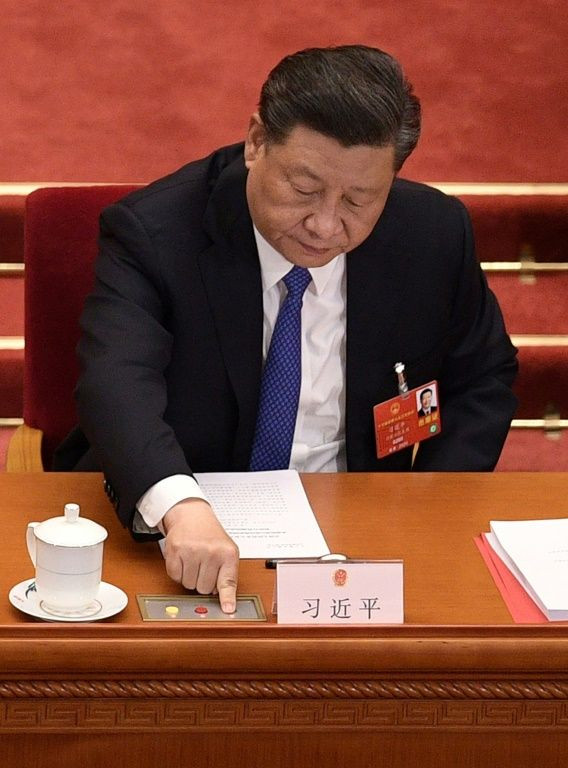
It joined forces with Britain a day later to try again, this time calling for an informal, closed-door videoconference of the Security Council in a format that allows any member to raise various issues and which China cannot in principle oppose.
The meeting is set to go ahead Friday morning, diplomats told AFP.
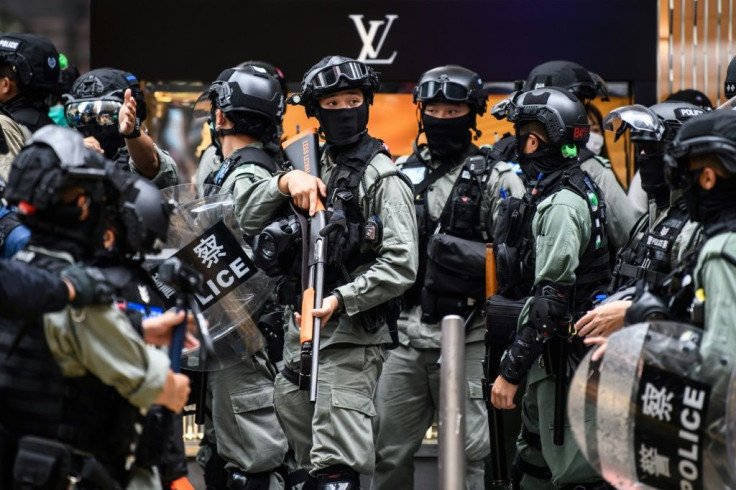
Under a US law passed last year aimed at supporting Hong Kong's pro-democracy movement, Washington must certify that Hong Kong still enjoys the promises of freedom made by Beijing when it negotiated with Britain to take back the colony.
But Beijing's proposed security law "lies in direct conflict" with those commitments and put China in violation of its international obligations, the US and Britain said in a joint statement with allies Canada and Australia on Thursday.
A day earlier Washington signalled that the city could lose its trading privileges -- including lower tariffs than the mainland -- with the world's largest economy.
President Donald Trump said he would be announcing "what we're doing with respect to China" at a press conference on Friday, saying he was "not happy" with Beijing but giving no specific details.
David Stilwell, the top State Department official for East Asia, stressed that the United States did not want to hurt the people of Hong Kong, adding: "This decision was made by the government in Beijing, and not by the US."
China's foreign ministry office in the financial hub said Thursday that the US revoking Hong Kong's special status was "the most barbaric, the most unreasonable and the most shameless".
Washington's move came after fresh protests broke out in Hong Kong on Wednesday over another controversial proposed law that criminalises insults to the national anthem.
Police fired pepper ball rounds at protesters and arrested more than 300 people, mostly for unlawful assembly.
"It's like a de facto curfew now," Nathan Law, a prominent pro-democracy advocate, told AFP.
"I think the government has to understand why people are really angry."
But a spokesperson from Beijing's liaison office in Hong Kong issued a warning to the protesters "not to play with fire," in comments supporting the security law and carried by state news agency Xinhua.
Under the "one country, two systems" model agreed before the city's return from Britain to China, Hong Kong is supposed to be guaranteed certain liberties until 2047 that are denied to those on the mainland.
But an effort to do so in 2003 was shelved after huge protests by Hong Kongers.
© Copyright AFP 2024. All rights reserved.





















